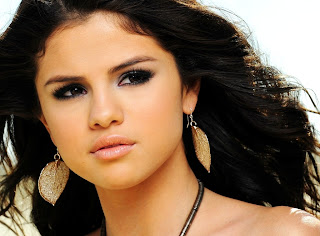
As the world's oldest film fest, the Venice Film Festival is well-respected and gets plenty of accolades. The only real complaint people had was that the schedule was too full and hectic for even the most avid moviegoers. The festival's organizers heard this feedback and have unveiled a slimmed down 2012 schedule in response.
.jpg)
Alberto Barbera was the creative director of the Venice Film Festival from 1998 to 2002. Ten years after his departure, he is returning to Venice with the intention of paring down the scale to make it a more intimate and accessible event.
.jpg)
He hopes that fans will be able to see most of the films, noting that a "bulimic" lineup does not serve the festival or fans. He also feels that the larger the selection, the less overall quality there is in the film pool, so he intends to make quality the clear focus of this year's festival.

In late July, announcements were made as to which films will be entered into the coveted competition. A grand total of 18 films will compete for the biggest prize, the Golden Lion. Only 17 of them were announced, in keeping with tradition. The 18th film will be unveiled at a later date, though that date has yet to be divulged.

Among the announced Golden Lion entries is "Passion" from director Brian De Palma, a thriller with plenty of sex and seduction. It marks De Palma's return to filmmaking after a five-year hiatus.

Also entered is Terrence Malick's "To the Wonder," starring "The Notebook" actress Rachel McAdams and Ben Affleck. "Kids" director Harmony Korine will present "Spring Breakers" with James Franco, Vanessa Hudgins and Selena Gomez.

Zac Efron and Dennis Quaid will star in "At Any Price," about industrial agriculture and directed by Ramin Bahrani. "Bella Addormentata" is from Italian director Marco Bellocchio and is inspired by a true story of a woman in a coma who was kept alive by a feeding tube. The film depicts the struggle of her family to try and have the tube removed despite government interference.

The opening night film will be "The Reluctant Fundamentalist" by Mira Nair. It isn't competing for any prizes, but it is sure to attract a lot of attention. It stars Kiefer Sutherland, Liev Schreiber and Riz Ahmed, who plays a Pakistani Wall Street wiz who gets caught up in the conflict in his home country immediately following the attacks on September 11. The closing night film will be "L'Homme Qui Rit" by French filmmaker Jean Pierre Ameris. It is considered an honor to be either the opening or closing film, since they are given special spots and recognition.

Conspicuously missing from the lineup is "The Master," from director Paul Thomas Anderson. The film was long thought to be headed for the Venice Film Festival, so much so that it was almost a foregone conclusion. However, when festival brass released the list of films competing, it was absent. No explanation was given, but it is rumored that the film may yet get into the festival as the mysterious 18th competitor for the Golden Lion. The film stars Phillip Seymour Hoffman and Joacquin Phoenix in a story about a cult-like religion that is a thinly veiled reference to Scientology.

The slimmed-down schedule is only one of the many changes that are beginning to happen for the annual fete. There were plans to make a Palazzo del Cinema, a grand viewing area for festival attendees that was large and lavish. The project became so bloated that it ran out of money, leaving an enormous pit that had been dug for construction. Barbera is overseeing the filling of the pit in addition to a smaller, scaled-back reconstruction of the current grounds where the films are viewed. He views the transition as a great opportunity for the venerable competition.

The Venice Film Festival is a great way to start conversations about the films before the larger Toronto Film Festival begins in September. In addition to the Golden Lion, the Silver Lion award is given to the best director of the films entered into competition, and the Volpi Cups awards are given to the best actor and actress from the screened movies. Each year, the jury awards one or two Special Jury Prize. The Golden Osella is for technical contributors, such as composers, cinematographers and screenwriters. Before 1942, the awards were called the Mussolini Cups, named after then-dictator Benito Mussolini. When his regime fell during WWII, the names of the awards were changed.
